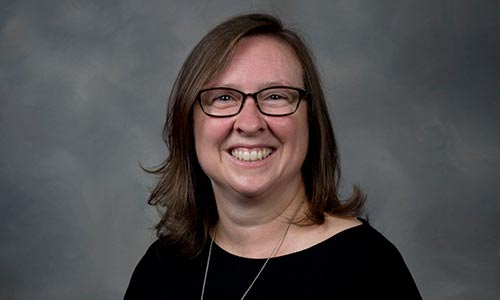Goodspeed Lecture: Rebecca Todd Peters
| Location: | |
| Ticket Info: |
FREE
|
| Questions: |
Academic Administrative Assistant
|
| Sponsor(s): |
The Goodspeed Lecture welcomes Rebecca Todd Peters, professor of religious studies at Elon University, renowned feminist ethicist and theologian, for a lecture titled “Abortion is Not the Problem: Why We Need Reproductive Justice.”
The lecture is based on Todd Peters’ recent book, Trust Women: A Progressive Christian Argument for Reproductive Justice (Beacon Press, 2018), arguing that “the starting point of our ethical conversation about abortion should be women’s lives” yet the problem we face in this country is our failure to trust women to act as rational, capable, responsible moral agents.”
Todd Peters is Professor of Religious Studies and Director of the Poverty and Social Justice Program at Elon University. Her work as a feminist social ethicist is focused on globalization, economic, environmental, and reproductive justice. She is the author or editor of eight books including the award-winning In Search of the Good Life: The Ethics of Globalization (Continuum, 2004) and Trust Women: A Progressive Christian Argument for Reproductive Justice (Beacon Press, 2018). Ordained in the Presbyterian Church (U.S.A.), she has been active denominationally and ecumenically for more than twenty-five years and currently represents the PC(USA) as a member of the Faith and Order Standing Commission of the World Council of Churches. In addition to her books, Peters has published more than 25 articles and chapters and her blog, “To Do Justice” can be found on the Progressive Christianity page of Patheos. She is currently a Public Fellow at the Public Religion Research Institute (PRRI) and an Elon Senior Faculty Research Fellow for 2018-20.
Her lecture is based on her recent book, Trust Women: A Progressive Christian Argument for Reproductive Justice (Beacon Press, 2018), arguing that “the starting point of our ethical conversation about abortion should be women’s lives” yet the problem we face in this country is our failure to trust women to act as rational, capable, responsible moral agents.”
More Upcoming Events
No similar events available at this time.
